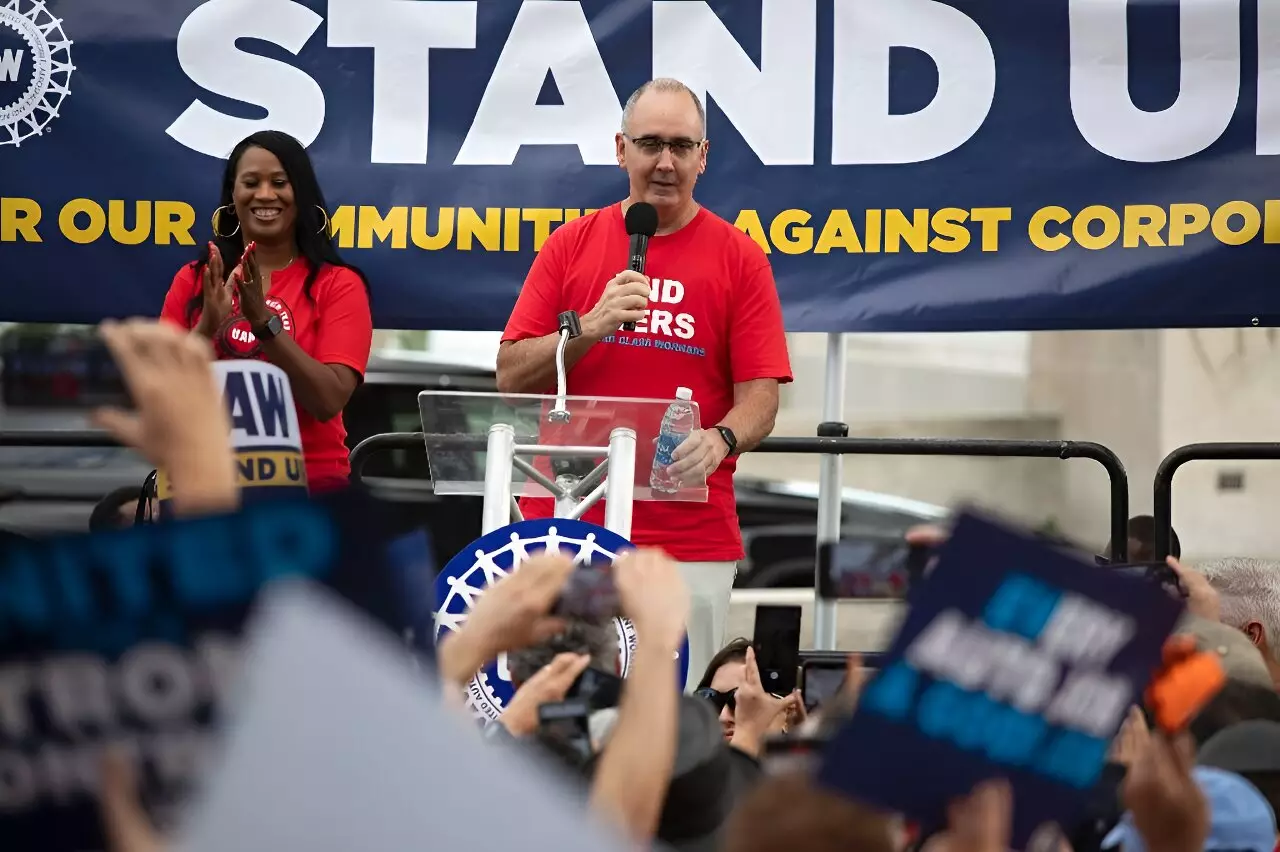The recent rejection of the union drive at Mercedes-Benz’s Alabama facilities has dealt a significant blow to the United Auto Workers’ (UAW) efforts to organize the American South. The National Labor Relations Board released the results of the vote, which saw 2,642 workers voting against unionization and 2,045 in favor, resulting in a 56 to 44 percent margin. This outcome has implications not only for the UAW but also for the future of organized labor in the southern United States.
Led by President Shawn Fain, the UAW had hoped for a second victory following a successful unionization drive at Volkswagen in Tennessee. However, the UAW faced significant opposition from various stakeholders, including Mercedes-Benz, state and local officials, and even the Republican Governor of Alabama, Kay Ivey. This opposition was rooted in concerns about job losses and threats to the local economy posed by unionization. Despite the disappointment in the election results, Fain remains committed to continuing the UAW’s efforts to organize the South.
Union backers have raised concerns about the tactics used by Mercedes-Benz to discourage unionization, including anti-union communications during mandatory meetings. Workers who supported the union have filed complaints alleging violations of labor laws with both the National Labor Relations Board and German officials. These allegations point to a broader issue of companies engaging in anti-union campaigns to dissuade workers from joining organized labor.
The rejection of the union drive at Mercedes-Benz’s Alabama facilities underscores the challenges that organized labor faces in the American South. Despite recent successes, such as the strike by the UAW against Detroit automakers that resulted in wage hikes, the South remains a difficult region for unions to penetrate. Southern politicians have long been opposed to organized labor, fearing that unions will detract from the region’s ability to attract large companies.
The UAW’s defeat at Mercedes-Benz serves as a reminder of the obstacles that unions must overcome in the South. While the UAW has made progress in recent years, additional drives at plants operated by companies like Honda, Toyota, and BMW will likely face resistance. The success of the UAW in the South hinges on its ability to overcome anti-union campaigns and garner support from workers who may be hesitant to join organized labor.
The rejection of the union drive at Mercedes-Benz’s Alabama facilities highlights the ongoing challenges faced by organized labor in the American South. Despite setbacks, the UAW remains committed to its mission of unionizing workers and improving conditions in the auto industry. The road ahead may be difficult, but the UAW’s dedication to fighting for workers’ rights remains unwavering.


Leave a Reply